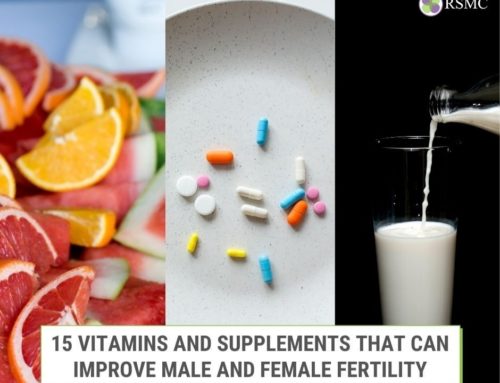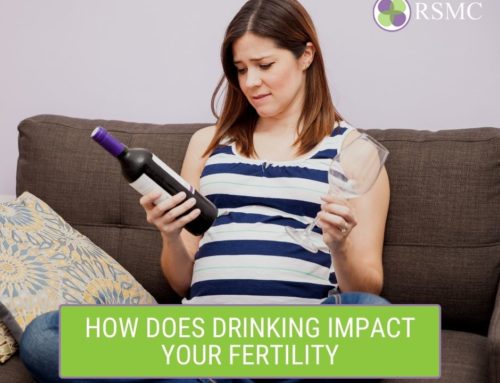Female Infertility is Affected by Numerous Factors, Here Are 7 Lifestyle Changes That Can Impact Women’s Fertility

- Sleep, are you getting enough? Chances are you aren’t, most people don’t. A lack of sleep can affect women’s fertility by affecting her periods. Irregular periods are one of the symptoms of female infertility and can be caused by artificial light from overhead lights, smart phones and tablets. Late night exposure to too much light can suppress melatonin production. Melatonin is the sleep hormone and is also produced in the reproductive tract where it blocks eggs from damaging free radicals, particularly during ovulation. Poor egg quality is one of the main reasons people turn to donor eggs so you can see why sleep is considered so important.
- Are you at a healthy weight? Yet another thing that can mess with your periods and ovulation is being significantly over or under weight. The American Society for Reproductive Medicine estimates that 12 percent of female infertility cases are weight-related.Being both underweight and overweight can affect your hormonal balance, which will interfere with regular periods and your ability to conceive.
- Overeating – Eating a lot of junk food, is another one of the factors affect fertility. While going through female infertility testing and treatment it’s tempting to indulge in treats, especially when the treatment is stressful or the last pregnancy test was negative. There are a couple of reasons why you shouldn’t overeat if you already have female infertility issues. First, of course, is that it sends your weight up which can cause ovulation issues and irregular periods. Another factor when eating a lot of sweet junk food is the spike in your blood sugar. This causes an insulin spike and there is a theory that insulin and fertility are connected. Vitamins are another issue, most junk food doesn’t contain the vitamins you need to keep your reproductive system healthy, like vitamins D, B6 and zinc that regulate reproductive hormones like progesterone, insulin, and testosterone. After gorging on junk food some people then take to strenuous dieting, also not conducive to conception because it throws off your hormones and causes ovulation problems.
- Smoking is another one of the factors affect fertility, it ages the ovaries, depletes your supply of eggs prematurely and can damage eggs as they develop. It can also damage the fallopian tubes and cause an increase in the risk of an ectopic pregnancy. On top of the damage done to the tubes and eggs, smoking can also lead to changes in the cervix and increase your risk of cervical cancer. It’s no big secret that nobody should smoke, and if you’re going to have a baby you will have to give it up anyway, so you might as well start now giving both yourself and your baby a better chance.
- How much alcohol are you drinking? We already know that you shouldn’t drink alcohol while you’re pregnant but drinking too much while trying to conceive is one of the factors that affect female infertility. Alcohol can contribute to ovulation disorders, one of the main causes of female infertility. By the way, the male partner shouldn’t be drinking either. One research study thatevaluated semen from alcoholic men found that only 12% had normal, healthy sperm. (In non-drinkers and non-smokers, 37% had normal healthy sperm.) Most doctors and researchers agree that an occasional drink isn’t going to hurt anything but anything more should be avoided when trying to get pregnant.
- Like alcohol, a little caffeine is not bad but too much can play a part in women fertility. While this isn’t a huge factor, like alcohol, it is something that can be controlled. Studies have shown that women consuming more than 300 mg of caffeine per day have a higher risk of female infertility and a higher risk of miscarriage. More than 300 mg is the equivalent to two cups of coffee drip or percolate coffee (drip coffee having twice as much caffeine as percolated) or six cups of strong tea or caffeinated cola. Too much caffeine can also affect your sleeping habits so cutting down is a good idea any way you look at it.
- Finally, stop procrastinating and call your doctor if you haven’t conceived within a year. If you’re under 35 and within 6 months you cannot conceive you should see a fertility specialist. And if you’re over the age of 35 and wanting to have children it’s in your best interest to also see a fertility specialist if you can’t conceive within 6 months. Women’s fertility starts to decline at 27 and then takes a really steep dive at 35, so the faster you get to a fertility center the better chance you have of solving your female infertility problem.
Women’s fertility is controlled by their biological clock, so anything we can do to prevent damage to the body it’s important to implement. Altering these seven habits will help you maintain a healthier body, one more likely to conceive and carry a child to term, but won’t overcome all factors affecting fertility. If you feel like it’s time to see a fertility specialist it probably is, you know your body better than anyone else.























